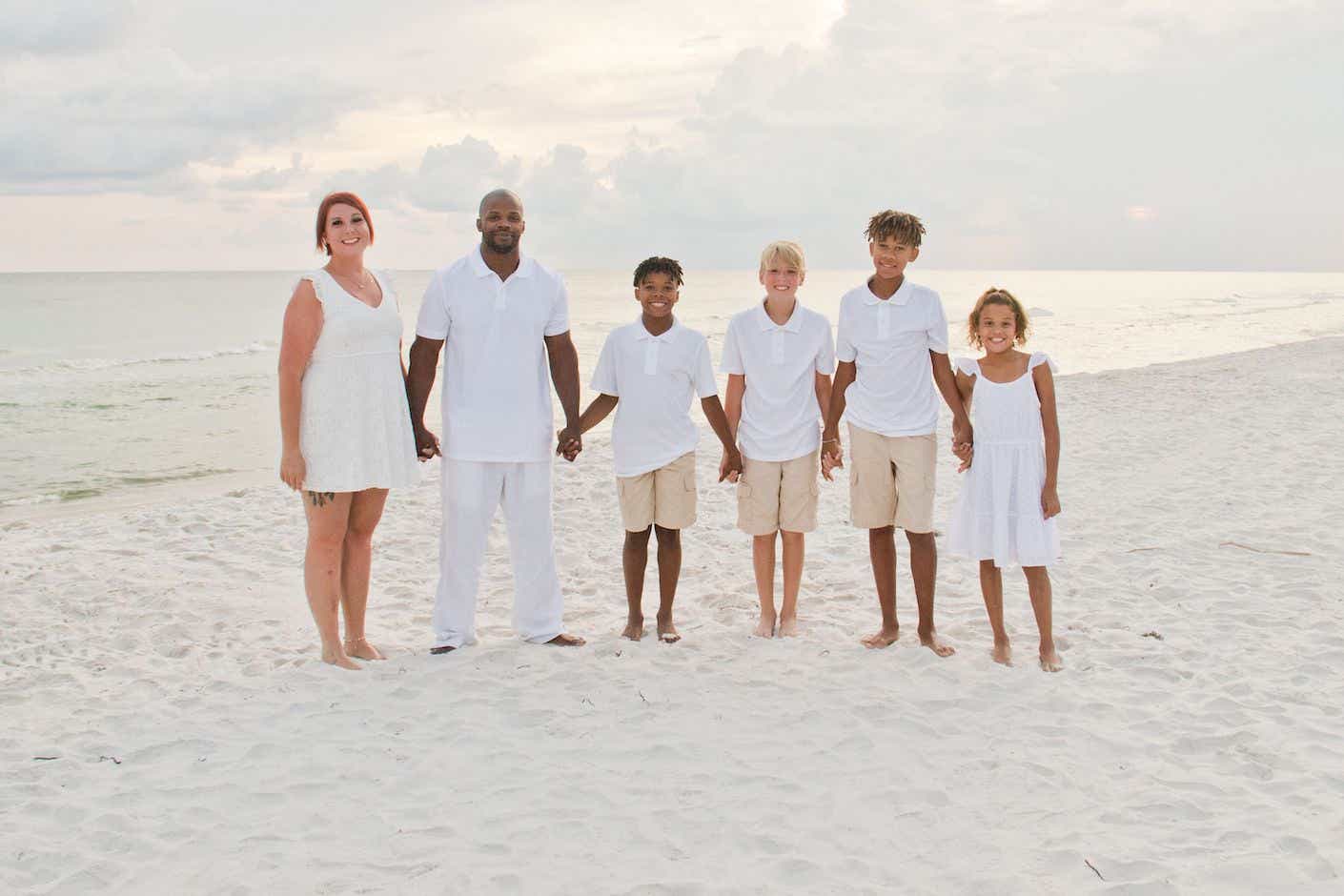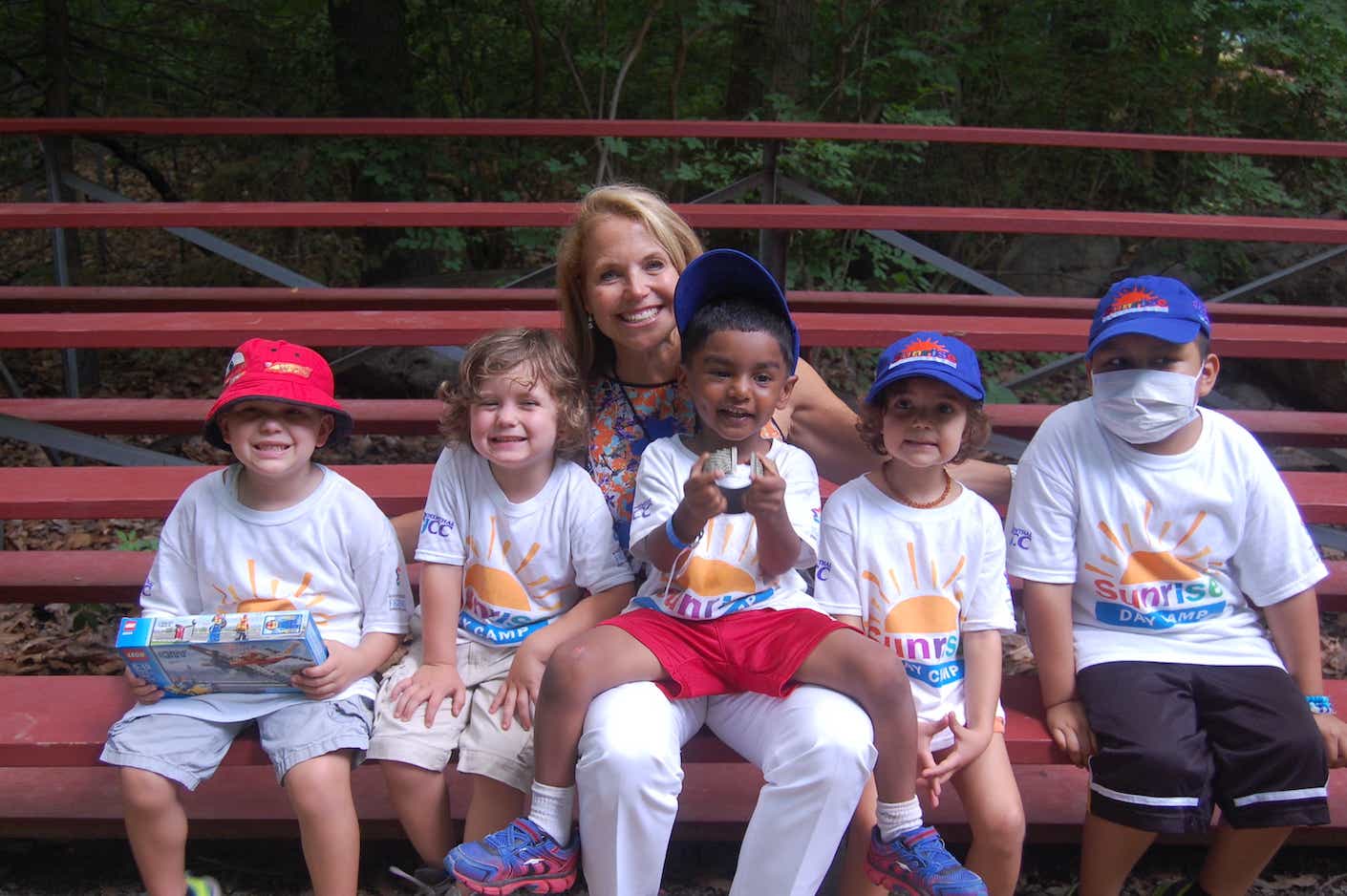As too many of us unfortunately know, battling cancer is unthinkably stressful. Cancer patients undergo costly, distressing treatment and grapple with scary side effects. They also have to navigate the often overwhelming healthcare system and stay on top of the logistics of their treatment — not to mention carry the weight of significant financial strain that often accompanies a diagnosis.
Caregivers are also susceptible to these stressors and are inclined to burn out when they sacrifice self-care to help their loved one — a 2014 study reported that fatigue is common among cancer caregivers.
In short, both cancer patients and their support systems undergo profound upheavals in every aspect of life.
And while the logistical and physical aspects of battling a life-threatening illness are unavoidable, emotional well-being can easily get forgotten in the flurry of medical appointments, surgical procedures, attempts to understand treatment options, and financial issues. Of course, pushing off emotional wellness when facing catastrophe is basic human instinct, but it’s also important to note that living in survival mode can lead to increased anxiety and depression — conditions that most patients and caregivers might already be experiencing.
For these reasons and so many more, organizations have sprung up with the sole purpose of alleviating some of this strain on cancer patients and their loved ones. Because, in the middle of battling this disease, it’s easy to forget to enjoy life and have some fun.
CancerBuddy

A 2017 study explains that cancer patients often feel isolated from the general population because they have unrelatable existential concerns, they are let down by how their support systems handle illness, or are admonished by family and friends for speaking honestly about cancer-related concerns.
A balm for this loneliness is meeting people who have been through similar experiences and also crave mutual support. Unfortunately, cancer patients and caretakers are busy and it may be hard to devote time toward finding that community. But since we now live our lives phones-in-hand, the Bone Marrow & Cancer Foundation has provided an opportunity for cancer patients and caregivers to build a support network. In 2022, the foundation launched the free CancerBuddy app. Formatted with the sleek and accessible functionality of a dating app, users “match” on the platform to find and build friendships with other patients or caregivers. BMCF founder Christina Merrill says that she sees patients make “incredible connections” and gather “tremendous amounts of support for themselves” that reduce feelings of isolation.
The app provides a community for patients based on “peer support and connection” but it also does so without conflicting with otherwise busy schedules. Rather than carving out rare chunks of time to find peer support in person, CancerBuddy users can easily access this burgeoning community while convalescing, rushing to appointments, or killing time in a waiting room.
Merrill tells KCM that CancerBuddy circumvents a sad reality faced by patients seeking community: Because of HIPAA laws, medical professionals can’t share patient information. That means that two patients of the same age in the same hospital (maybe even with the same diagnosis) might never meet and experience a life-affirming friendship.
On the app, you can filter other users by “age, gender, and interests” (e.g. dogs, or yoga) as well as type of cancer, side effects, and location (like your city, hospital, or university). If you’d feel more comfortable joining a group chat, those are available as well. Social workers and other professionals run groups on the platform that cover a variety of tough topics: “It could be about infertility in cancer or how to talk to your friends about your diagnosis,” says Merrill.
The app currently has 1000 English-speaking users in the United States. Merrill happily reports there are plenty of plans to expand. Since the app is currently only available in iOS, bringing CancerBuddy to Android is a huge goal. BMCF also plans to take CancerBuddy international and offer the service in various languages (she notes that the first non-English language available in the U.S. will be Spanish).
Merrill points out that during the pandemic, even the healthiest among us realized the intensely adverse effects of isolation. No one enjoyed that distinct lack of human connection. However, the cancer community has been grappling with the plight of loneliness for ages — and it’s high time to build technological infrastructure to address it. She believes that CancerBuddy is “really going to help patients become less lonely” and is happy to say that current users have already built “tremendous connections.”
Waves of Grace

This company emerged from a bittersweet personal experience: Jennifer Matwijec’s mother was diagnosed with cancer and often healed from treatment by visiting the family beach house. After Jennifer’s mother passed, Jennifer tells KCM she wished she “could bottle up the beach, the ocean, the sand, the laughter, and give it to cancer patients as their treatment.” She and her husband, Mike, soon began sourcing donated beach properties along the U.S. gulf coast. They sent their first cancer-stricken family on an all-expenses paid vacation in 2014. Since then, they have expanded to Myrtle Beach, the Great Smoky Mountains, and Disney World.
The Matwijecs focus on a very specific aspect of cancer care. It’s no secret that cancer is expensive — in fact, cancer patients very often can’t fully afford treatment. One survey reported that 51 percent of cancer patients and survivors carry medical debt from their treatment. For most people, that definitely means a vacation is off the table.
To give cancer patients a chance at rest and relaxation regardless of their financial status, Jennifer Matwijec and her husband, Mike, founded Waves of Grace. This nonprofit funds all-expenses-paid family beach trips for cancer patients. Jennifer points out that since “cancer affects everyone in the family…these trips benefit everyone.” That way, caregivers and children can take a break from their loved one’s stressful treatment plan, too.
The Matwijecs have noticed that families readily embrace the positive experiences as a respite from crisis: “I don’t know a single family that did not benefit from this time away.” Jennifer says that families heal through sweet, everyday bonding experiences that are so easy to take for granted: “They get time together. A mom and daughter just returned from their vacation and said they napped, explored, watched movies, and ate popcorn. It sounded so simple yet so profound. It brought back memories of me and my mom.”
Waves of Grace covers travel, medical equipment rental, meals, and entertainment. Beach photographers donate time to take family photos, too. Free of logistical stress, families can benefit from the relaxing and memorable joy that only quality time can provide. Jennifer mentions that making these lasting memories is especially important since “for some of these families, it’s their last vacation together.”
The Matwijecs hope to expand by creating their own Waves of Grace beach house that “would be completely handicap accessible and be equipped with all the things that could accommodate our most unique families” — while still being all expenses paid. Right now, they do request that applicants live in the southeastern United States. However, they hope to expand across the country.
If you’re interested in helping, you can donate to the Waves of Grace beach house fund, donate monthly, sponsor a trip, or become a corporate sponsor. If you own a vacation rental that sometimes sits empty, you can also donate your space.
Sunrise Association

Many of us have fond memories of summer camp. Some of us built lasting friendships with fellow campers or nabbed our first jobs as counselors in training. Many parents also love watching their children grow at camp — and are also maybe just a bit grateful to have the kids occupied during long summer days.
Unfortunately, when a child receives a diagnosis of a serious illness, the landscape of childhood changes — and parenthood shifts, too. When families grapple with financial strain, managing travel to treatment, and unthinkably scary feelings, extra expenses like summer camp will naturally fall by the wayside. However, Sunrise Association CEO and President Arnie Preminger points out that missing out on play and conventional socialization can have lasting effects: “Children whose childhood is disrupted by something as insidious as cancer don’t progress along these lines and will often find themselves without the skills that they need to grow into competent adults.”
In an effort to provide pediatric cancer patients with an outlet for fun, the Sunrise Association holds summer camps specially designed for cancer patients and their families. There are accommodations in place to support campers with cancer, too. Camps are held during the day with the understanding that a sleepaway option would be unrealistic for many children. With the day camp format, it’s easy for campers to take camp days off for treatment without missing too much fun. Plus, there are high and low energy activity options, and each camp has an on-site medical center. They also host a virtual camp, SunriseVX, for children who cannot attend in-person.
To make the camps as accessible as possible, all Sunrise services are free: “The costs associated with childhood cancer can be crippling to the average family. Between co-pays, deductibles, transportation costs, costs of non-covered experimental treatments, loss of time at work for the parent…the entire family is impacted. Making sure that all our services are free eliminates a giant obstacle for families already facing so many hurdles.” The camp also hosts extended hours to give working parents some leeway. Plus, Sunrise offers free bus transportation to select areas.
Addressing another gap in pediatric cancer care, Sunrise camps offer placement to “well siblings” (that is, siblings who are cancer-free). Preminger mentions that cancer usually reshapes sibling relationships in damaging ways: “[Including well-siblings] helps to restore the natural family rhythms within a safe environment. Allowing siblings to play with one another is a particular issue for many parents, as they may often restrict how the children play because they’re fearful of the sick child accidentally getting hurt.”
Sunrise gives campers daily experiences that affirm them outside of their diagnosis: “We don’t treat children as cancer patients, but rather just as children. And with every normative childhood experience they have, the campers become stronger.” Not only does typical childhood play help heal emotional trauma, it also has huge developmental benefits: “Having fun is one of the most critical things in normal childhood development, because what we consider to be fun is also learning for children, although not in the traditional sense.”
The Sunrise Association also hosts year round programs, the most popular of which is the Sunrise on Wheels project: “Groups of volunteers, led by a Sunrise staff member, roll tie-dyed trunks filled with games and toys into dozens of in-hospital chemotherapy units as well as inpatient areas, where we change the children’s focus from treatment to fun.”
The Sunrise Association is steadily expanding, too; they have a goal “to reach one-third of all eligible U.S. pediatric cancer patients and their siblings by 2025.” In the short-term, they plan on having 12 locations worldwide by next year as they also keep increasing year-round services. If you’d like to help, you can donate, get involved in fundraising events, or volunteer.









